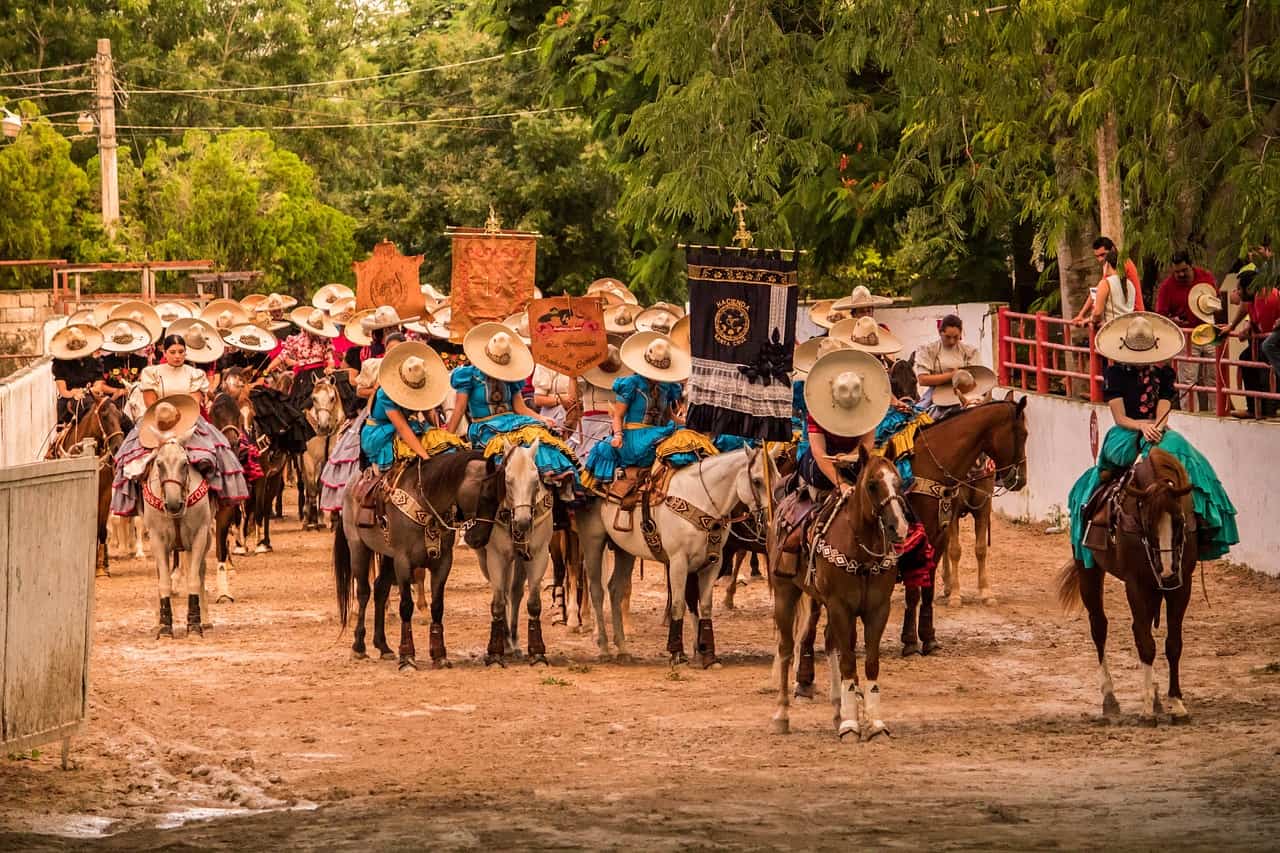Introduction
Horse cultures around the world are as diverse and captivating as the magnificent creatures themselves. From the untamed wild horses roaming the American West to the refined equestrian traditions of Europe, the bond between humans and horses has shaped cultures and societies across the globe. In this blog, we will embark on a journey through different horse cultures, delving into the rich history, unique practices, and enduring traditions associated with these remarkable animals.

In the United States, American horses hold a special place in the nation’s history and cultural fabric. From the iconic wild mustangs symbolizing the untamed spirit of the Wild West to the popular American Quarter Horses excelling in Western disciplines, horses play a significant role in American identity.
excelling in Western disciplines, horses play a significant role in American identity.
Across the Atlantic, Europe boasts a rich equestrian heritage. From the classical dressage of the Spanish Riding School in Vienna to the thrill of horse racing in England and the tradition of Le Cadre Noir in France, European horse-riding traditions have made lasting contributions to the world of equestrian sports.
And let’s not forget the captivating allure of wild horses. From the Chincoteague ponies of Virginia to the Camargue horses of southern France, these untamed equine populations evoke a sense of freedom and natural wonder.

Join us as we delve into the fascinating world of horse cultures around the world, exploring the history, traditions, and enduring legacy of these magnificent creatures.
Horse Culture
Horses have played an integral role in human civilization for centuries, shaping cultures and societies around the world. From their early domestication to their presence in various forms of equestrian sports and leisure activities, horses continue to captivate our hearts and minds. We will embark on a journey through different horse cultures around the world, exploring the enduring traditions associated with these magnificent creatures.
- American Horses
In the United States, horses hold a special place in the nation’s history and cultural fabric. The wild mustangs roaming the vast plains of the American West are emblematic of the country’s frontier spirit and embody the freedom and resilience associated with the Wild West. Organizations like the Bureau of Land Management (BLM) work to protect and manage these wild horses, ensuring their preservation and providing opportunities for adoption.
American Quarter Horses, known for their speed and versatility, are one of the most popular breeds in the country. These horses excel in Western disciplines such as rodeo events, cutting, and reining, reflecting the strong connection between horses and American cowboys.

European Horse Riding
Europe has a rich equestrian tradition that dates back centuries. From classical dressage to show jumping and eventing, European countries have made significant contributions to the world of equestrian sports. The Spanish Riding School in Vienna, Austria, is renowned for its classical dressage training, which emphasizes harmony, balance, and precise movements between horse and rider.
to show jumping and eventing, European countries have made significant contributions to the world of equestrian sports. The Spanish Riding School in Vienna, Austria, is renowned for its classical dressage training, which emphasizes harmony, balance, and precise movements between horse and rider.
England, the birthplace of modern horse racing, boasts prestigious events like the Royal Ascot and the Grand National, captivating audiences with thrilling races and rich heritage. France, too, has a deep connection with horses, celebrated through events like the prestigious Prix de l’Arc de Triomphe and the tradition of Le Cadre Noir, the national equestrian school.
Wild Horses
The sight of wild horses galloping freely across expansive landscapes evokes a sense of untamed beauty and natural wonder. These magnificent creatures, often associated with freedom and resilience, can be found in various parts of the world. The American West is home to wild mustangs, descendants of Spanish horses brought by European explorers. The Chincoteague ponies of Virginia, made famous by Marguerite Henry’s novel “Misty of Chincoteague”, are another example of wild horse populations in the United States.

Beyond the United States, the Camargue horses of southern France roam freely in marshlands, adapted to the unique environment and a popular attraction for tourists. The brumbies in Australia, the Namib Desert horses in Namibia, and the New Forest ponies in England are also iconic examples of wild horse populations that captivate visitors with their untamed beauty.
Preserving the Horse Culture
Preserving and protecting horse cultures is crucial for maintaining biodiversity, promoting animal welfare, and safeguarding cultural heritage. Many organizations and individuals worldwide work tirelessly to ensure the survival and well-being of horses.
Efforts to preserve wild horses involve initiatives such as habitat conservation, responsible population management, and public awareness campaigns. Organizations like the American Wild Horse Campaign and the Wild Horse Preservation League advocate for the protection of wild horse populations in the United States.
Furthermore, promoting responsible horsemanship and sustainable equine practices is essential to ensure the well-being of horses involved in various equestrian disciplines. Organizations like the Fédération Equestre Internationale (FEI) and the United States Equestrian Federation (USEF) enforce strict guidelines for horse welfare in competitions, including veterinary inspections, drug testing, and regulations on training techniques.
and sustainable equine practices is essential to ensure the well-being of horses involved in various equestrian disciplines. Organizations like the Fédération Equestre Internationale (FEI) and the United States Equestrian Federation (USEF) enforce strict guidelines for horse welfare in competitions, including veterinary inspections, drug testing, and regulations on training techniques.
Conclusion
In conclusion, the world of horse cultures is a captivating tapestry that spans continents and centuries. From the iconic American horses that embody the spirit of the Wild West to the refined equestrian traditions of Europe and the untamed beauty of wild horses, the bond between humans and horses transcends boundaries. These horse cultures not only reflect the unique history and heritage of different regions but also serve as a testament to the enduring connection between humans and these majestic animals. Whether in the realm of sport, leisure, or preservation, horses continue to inspire and captivate, reminding us of the profound impact they have had on our world.
Horse cultures around the world offer a captivating glimpse into the enduring bond between humans and horses. From the iconic wild mustangs of the American West to the refined equestrian traditions of Europe, horses continue to inspire and unite people across different continents and cultures. Preserving these horse cultures, whether through conservation efforts or responsible horsemanship, is not only crucial for the well-being of horses but also for safeguarding our shared history and cultural heritage.
Whether you’re an equestrian enthusiast, a lover of nature, or simply curious about the profound influence horses have had on human civilization, exploring these diverse horse cultures will undoubtedly deepen your appreciation for these majestic creatures and the remarkable ways they have shaped our world. So saddle up and embark on a journey through the fascinating world of horse cultures – you’re bound to be captivated by their timeless allure.
Recent Posts
Mastering English Dressage: Tips and Techniques Complete Guide 101
Introduction English dressage is an equestrian sport that involves precise movements and commands between a dressage horse and its rider. It is a graceful, beautiful art form that requires skill...
Introduction Are you looking to learn more about western dressage, the art of horse dressage? If so, you've come to the right place. In the previous blog we looked at Western vs English Dressage,...

